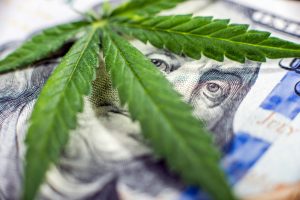On April 30, the U.S. Court of Appeals for the Ninth Circuit issued an unpublished order in Hemp Industries Assoc. v. U.S. Drug Enforcement Administration, et al., denying the Hemp Industry Association’s (HIA)  petition seeking review of the DEA’s Final Rule establishing a new drug code for marijuana extract that went into effect on January 13, 2017.
petition seeking review of the DEA’s Final Rule establishing a new drug code for marijuana extract that went into effect on January 13, 2017.
Denying the petition, the Ninth Circuit noted that
“A party may petition a Court of Appeal for review of a final DEA decision, 21 U.S.C. § 877, but if the party fails ‘to make an argument before the administrative agency in comments on a proposed rule,’ they are barred ‘from raising that argument on judicial review.'”
HIA did not submit comments in response to the DEA’s notice of proposed rulemaking, but filed their petition for review the same day the new rule took effect.
According to the Ninth Circuit, one commenter inquired whether this would cover “100% pure Cannabidiol by itself with nothing else?” But, the Ninth Circuit was persuaded that the DEA, in the final rule, “put this question to rest when it rephrased the definition to apply to an ‘extract containing one or more cannabinoids[.]’” Cannabidiol or CBD is a non-psychoactive chemical that is typically derived from hemp. Although hemp is a variety of the cannabis plant, it differs from its marijuana cousin primarily in its chemical composition. The maximum level of tetrahydrocannbinol (THC), the chemical responsible for marijuana’s psychoactive effects, found in hemp is 0.3%. Marijuana, on the other hand, has a THC content of anywhere between 5-30%. Additionally, hemp contains a high level of CBD, which acts as a combatant to THC and essentially renders the THC content in hemp useless. Regardless of its non-psychoactive qualities, the Ninth Circuit ultimately concluded that
“Neither this comment nor any other raised with sufficient clarity Petitioners’ current argument that the Final Rule scheduled a new substance. Nor did any comment raise Petitioners’ additional arguments that the Final Rule and its promulgation violated the Information Quality Act, Regulatory Flexibility Act, or Congressional Review Act. Petitioners have therefore waived their arguments relating to the scheduling of a new substance and those Acts. There are no exceptional circumstances to excuse the waiver.”
The Ninth Circuit otherwise found that HIA’s argument that the Final Rule conflicts with a portion of the Agricultural Act of 2014 and the Consolidated Appropriations Act of 2016 without merit.
Because this decision ultimately confirms that states who permit the sale of CBD are indeed violating federal law, it could have a chilling effect on the CBD industry in the United States, which is currently experiencing a boom similar to that of its marijuana cousin. In 2016, hemp-based CBD generated $170 million in sales in the United States. Prior to this decision, hemp-based CBD was projected to be a billion-dollar market by 2020. Although HIA is planning to appeal, those involved in the commercial CBD market face an increased risk of fines and federal raids.
 Gravel2Gavel Construction & Real Estate Law Blog
Gravel2Gavel Construction & Real Estate Law Blog


